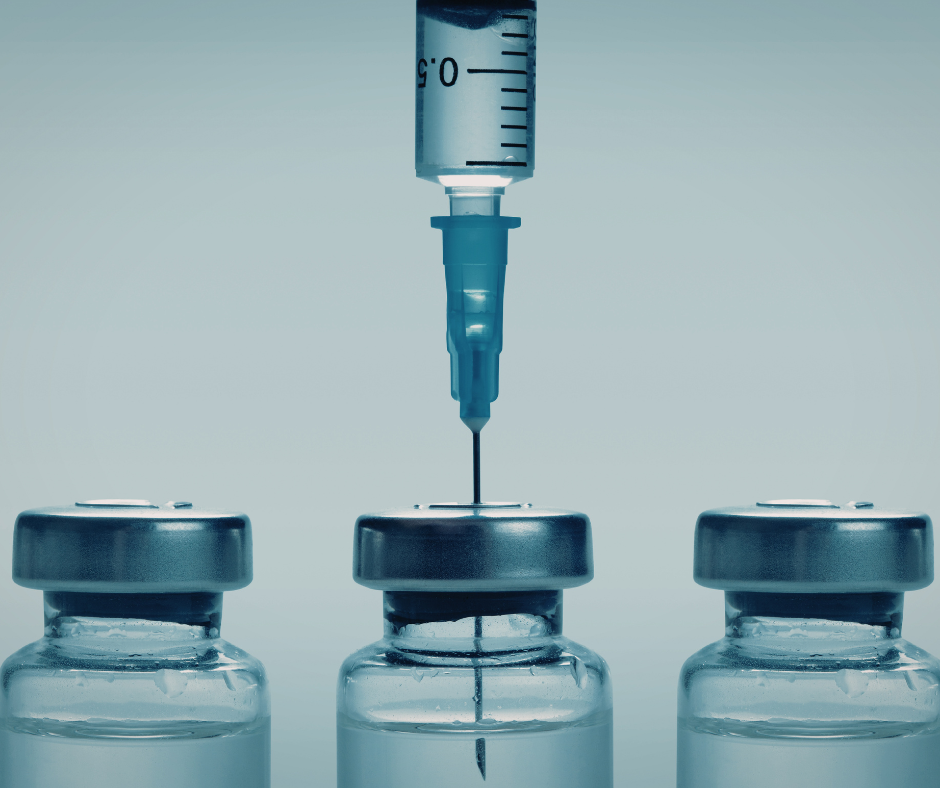If we’re having mysterious aches and pains or going through a hard time mentally, we are often quick to blame “hormones,” usually jokingly. The truth is that having the right hormone balance is essential for good health, and it’s therefore important to pay attention to the signs of a hormonal imbalance.
Keep reading to learn about the potential causes of this condition, as well as signs and treatments.
Overview
In the simplest of terms, a hormonal imbalance occurs when there is too much or too little of a particular hormone within the body. Hormones are produced in the endocrine glands, and they all work together to maintain the human body, being responsible for essential systems such as metabolism, reproduction, and blood pressure.
Each of our hormones needs to be in perfect balance to keep the body functioning correctly, and even the smallest imbalance can lead to illnesses and disorders. In severe cases, this is known as endocrine system disorder/disease.
Hormones such as insulin and adrenaline have an equal chance of becoming imbalanced in both men and women. However, the respective sex hormones will affect each sex differently. Women will often experience an estrogen and/or progesterone imbalance, whereas men are more likely to suffer from a testosterone imbalance.
Causes of Hormonal Imbalances
Depending on which hormone is impacted, there may be several causes behind the imbalance. The following factors affect men and women equally:
- High-stress levels
- Eating disorders (as well as being underweight or overweight)
- Receiving chemotherapy
- Tumors on the hormone glands (malignant or benign)
Some of the reasons behind hormonal imbalance can also be specific to whether the sufferer is male or female.
Female-Specific Causes
Women naturally have numerous risk factors in developing a hormonal imbalance, including but not limited to:
- Taking the contraceptive pill
- Being pregnant/breastfeeding
- Going through menopause
- Suffering from polycystic ovarian syndrome
Unfortunately, these causes are attributed to your genetic makeup and/or biology, so there is not much you can do to eliminate these.
Male-Specific Causes
One of the most common causes of hormonal imbalance in men is the excessive use of steroids. While this is not a habit exclusive to men, male athletes will often use steroids to increase their muscle gain, which will throw off the natural hormone imbalance.
Hormone Disorders That Can Cause Further Imbalances
Unfortunately, hormone imbalance can be a vicious cycle caused by other hormone disorders. These include:
- Diabetes (Type 1 and Type 2)
- An overactive or under-active thyroid
- Disorders of the adrenal gland (such as Cushing syndrome and Addison’s disease)
If you suffer from any of these, you must listen to your body and remain aware of any symptoms that might appear.
Symptoms of Hormonal Imbalance
The most common symptoms will vary depending on the sex and age of the sufferer, and even some children can experience hormone imbalances.
Symptoms in Women
The symptoms of hormone imbalance in women are frequently dismissed as “nothing to worry about,” but it’s important to pay attention to the following signs:
- Irregular periods – either absent (amenorrhea) or very heavy
- Excessive hair growth on the face and body
- Hair loss from the head
- Mood swings and depression
- Vaginal dryness – leading to pain during sex
- Darkening of skin
- Acne (particularly on the face, chest, and back)
Symptoms in Men
Most of the male symptoms of hormonal imbalance will be hard to ignore:
- Erectile dysfunction/low sperm count
- Loss of libido
- Decreased bone/muscle mass
- Increased growth of breast tissue (known as gynecomastia)
- Less facial/body hair growth
The signs will differ in children because puberty will be delayed or perhaps even not occur at all. Girls will not grow breasts or begin menstruation, and boys’ voices will not deepen, nor will they grow body hair.
Testing for a Hormone Imbalance
If you or your child experiences any of the symptoms associated with a hormonal imbalance, it’s important to visit your doctor, who will be able to conduct several different tests. It is vital that you disclose all of your symptoms, as they will determine what type of test your doctor will carry out.
Blood Tests
This is usually the go-to option for doctors, as blood can give an excellent indication of the level of different hormones in your body. Hormone experts can analyze hormone blood panels to determine which treatment is most effective for your situation.
Saliva Tests
Saliva will detect the testosterone level in men, as well as progesterone and estradiol in women.
Dried Urine Tests
Urine can provide an excellent insight into sex and adrenal hormones in both men and women. The DUTCH test (Dried Urine Test for Comprehensive Hormones) uses a small urine collection to measure hormone metabolites from the dried urine samples. This at-home test checks hormone levels such as testosterone, estrogen, progesterone, cortisol, DHEA, and melatonin.
Ultrasound/MRI Scan/X-Ray
If your doctor has concerns about a particular hormone gland, they may recommend an ultrasound to provide detailed imagery of the gland. Leading from this, an MRI scan or x-ray may be required, as well as a biopsy.
Pap Smear/Sperm Count
If you seem to have an imbalance of a sex hormone, this will be the most accurate way to find out. For example, a low sperm count will indicate low testosterone in men.
Some hormone test kits can be ordered for home use. However, visiting your doctor will ensure that tests are carried out accurately and that you will receive the appropriate treatment.
Treating a Hormonal Imbalance
Medication may be a suitable option to treat a hormonal imbalance. Some medicines will help the imbalance in both sexes, such as Metformin (lowers blood sugar levels in people with diabetes) and levothyroxine (improves hypothyroidism). However, it may be more helpful to receive sex-specific treatment.
Treatments for Women
- Birth control – the type (pill, IUD, arm implant, etc.) will determine how the hormones are controlled and balanced.
- Hormone replacement therapy – depending on symptoms-may be given in pills, creams, or injections.
- Hormone blockers are beneficial for women with high levels of male hormones and will help minimize symptoms such as excessive hair growth.
Treatment for Men
Usually, doctors will recommend testosterone medication which, like estrogen, can come in several forms. If you have too much testosterone or another imbalance, you will likely undergo hormone replacement therapy in another form.
Natural Methods of Maintaining a Good Hormone Balance
If your symptoms are mild or you’re simply concerned about your future hormone balance, there are several steps you can take.
- Eat a healthy diet – cut back on sugar/carbohydrates, eat more protein, healthy fats, and fiber – avoid too much caffeine and alcohol.
- Manage stress in a healthy way (such as meditation or yoga)
- Practice good sleep hygiene – aim for 7-8 hours per night, avoid too much screen time at night, and try to go to bed at the same time every night
- Engage in exercise regularly
As well as helping to maintain a healthy hormone balance, these tips will allow you to lead a generally healthy lifestyle and avoid other potential illnesses.
Conclusion & Getting Started with HRT
Hormonal imbalances are often joked about or not taken seriously, however, you should contact your doctor if you have any concerns about your hormones. This will help to keep your physical, mental, and emotional health in good shape.
Before starting hormone replacement therapy (HRT), it is highly recommended that you consult with a physician. Learning about the benefits and possible side effects will allow you to make an informed decision regarding the state of your health. Your physician may also recommend a hormone blood test to check your current hormone levels. This test includes the panels needed for your physician to create an effective treatment plan, made just for your body.
Before starting hormone treatment, EVOLVE patients typically begin with either a Female Hormone Panel or Male Hormone Panel. This blood test provides the physician with accurate hormone levels, to help create the most effective hormone plan for you.
If you’re at all concerned with your hormone levels, contact your doctor or a qualified telemedicine provider like EVOLVE. Our team of hormone therapy experts will help you get started with a safe, effective, and affordable hormone treatment plan. Contact Patient Care @EVOLVE to schedule your consultation!






